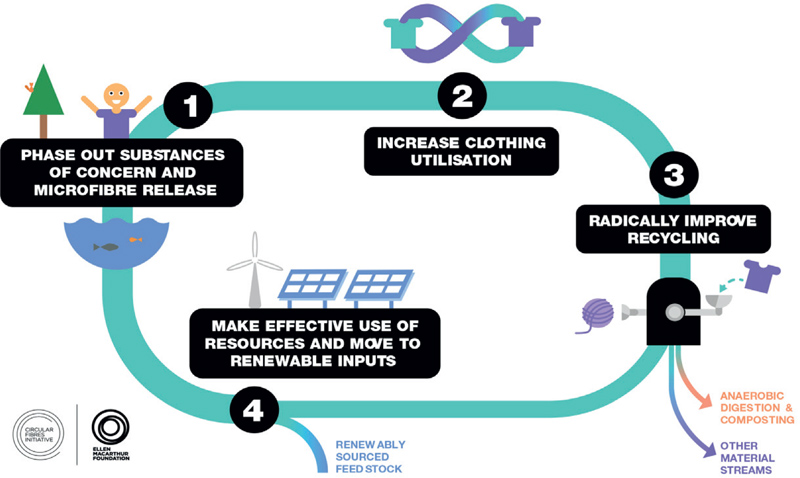Saturday Feb 21, 2026
Saturday Feb 21, 2026
Thursday, 8 July 2021 00:00 - - {{hitsCtrl.values.hits}}

Traditional thinking says that greening a business is nothing but extra costs for the sake of feel-good concepts. In reality, greening offers many hidden paths to profit. That is true for small and medium enterprises (SMEs) as well as large operators supplying global markets.
Green apparel sells at a premium
Greener apparel, made under sustainable and ethical conditions, are more attractive to environmentally conscious global consumers in our largest export markets of United States, UK and Eurozone. Savvy global consumers are willing to pay a premium on greener apparel. That is a key driving force behind global brands and their demand for greener apparel.
This is also true for the Sri Lankan suppliers serving these global brands. That is why leading Sri Lankan garment makers serving lucrative global markets are adopting innovative strategies including ‘Garments without Guilt’, ‘Responsible Fashion’ and Green Buildings.
Green businesses are more competitive
They can attract global firms seeking greener supply chains. Today, even Sri Lankan businesses listed in the Colombo Stock Exchange are required to adopt sustainability concepts for good corporate governance. Similarly, all those large buyers of Sri Lankan apparel also seek to ensure their supply chains follow sustainable, eco-friendly practices. It makes them attractive to ethical and environmentally conscious consumers and investors.
Designing for the environment and capitalising on the emerging trend of brand led recycling and sustainable fabrics will further enhance Sri Lanka’s competitiveness as a global apparel manufacturing destination.
Green apparel exporters can attract and retain good buyers
In the past, we have seen how sweat shop conditions in Asian supply chains created major public relations (PR) disasters for much loved global brands. Our global buyers are determined to avoid such disasters and demand supply chain sustainability from apparel makers. Most Sri Lankan apparel manufacturers are serving global markets. And whether they are SMEs or large-scale businesses, they are facing the need to go green to remain competitive and to attract and retain good buyers.
Greener businesses are also more profitable
Although universally true, the hows and whys of green approaches leading to profits are not well understood. Sustainable and green practices aim towards optimal resource consumption, using less harmful materials, generating minimal waste and greener business processes. All of these contribute to more environmentally friendly business operations.
Life cycle assessment, cleaner production, circular economy, science based targeting, zero discharges, clean energy use and waste management are concepts that would enable the Sri Lankan apparel sector journey along those hidden paths to profit.
Green buildings reduce overall operational costs
Any business, no matter how big or small, can benefit from green building concepts using sustainable materials and by reducing energy consumption across their facilities.
Investing in advanced technologies in wet processing
Investing in advanced technologies in wet processing lead to greater efficiencies. This has been identified as an area of opportunity for many Sri Lankan apparel makers.
Sustainable financing options
Sustainable financing options come in to provide the financing for greening of apparel sector operations. They are especially useful for SME apparel exporters to upgrade their facilities.
Crisis and opportunities come hand in hand. In a post-COVID-19 world, Sri Lankan apparel sector has the opportunity and the will to reach for greater competitive heights. Achieving success as a greener apparel destination requires a collaborative approach.
The Sri Lankan apparel industry needs to join hands with the Joint Apparels Association Forum (JAAF), Apparel Exporters Association and the Government of Sri Lanka to seek effective and speedy solutions to common problems.

HSBC and IUCN have been working together to formulate a strategy to build a more resilient apparel industry through adoption of greener practices. “A Road Map Towards a Greener Apparel Sector” report is the result of an extensive research conducted by the project team in partnership with the Joint Apparels Association Forum, Board of Investment Sri Lanka, National Cleaner Production Centre and Sri Lanka Bankers’ Association.
To access the full report visit www.hsbc.lk/ApparelSectorResearch